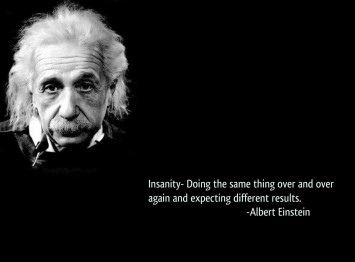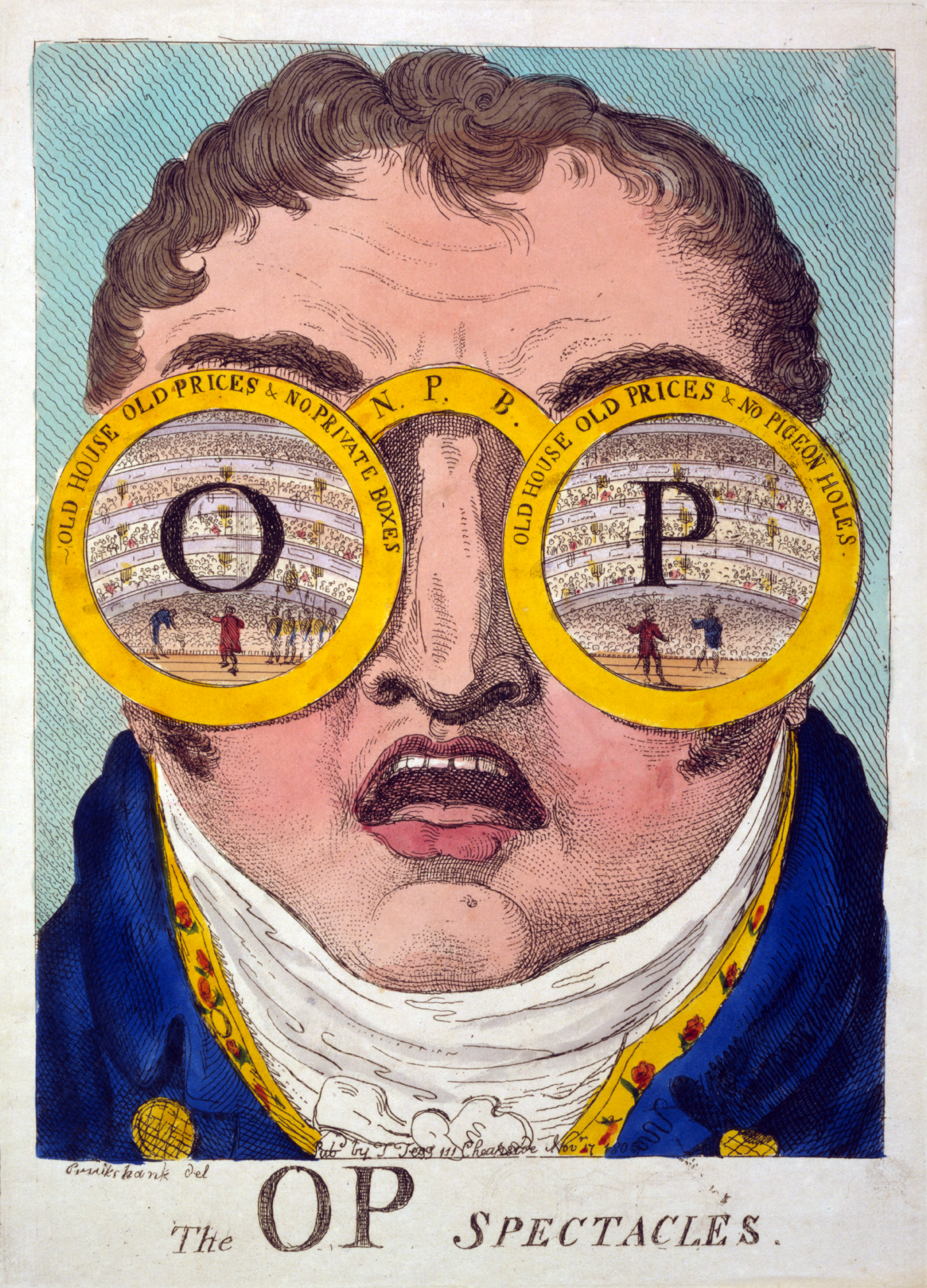This edition of the Health Wonk Review is a bit tongue-in-cheek, as I offer some interesting definitions of well-known words and make light of some of the more despair-inducing aspects of the world of health policy. Buckle up, because it’s going to be a bumpy ride!
This edition of the Health Wonk Review is a bit tongue-in-cheek, as I offer some interesting definitions of well-known words and make light of some of the more despair-inducing aspects of the world of health policy. Buckle up, because it’s going to be a bumpy ride!
Insanity (n.) – I’ve always heard that the definition of insanity is doing the same thing repeatedly and expecting different results. Well, if that’s true, then House republicans must be insane, because they recently tried again–for the 37th time–to repeal the Affordable Care Act. They were again–for the 37th time–entirely unsuccessful. Louise, of the Colorado Health Insurance Insider, says “I can understand citizens and lawmakers being concerned and wanting to address the problems that they see in the law. But before they push for another vote to repeal or defund all or part of the ACA, I’d like to see them put forth very specific rec ommendations for change, including details on exactly how their solutions would work to make sure that everyone in America has access to quality, affordable healthcare.” Similarly, at the Health Insurance Resource Center Blog, Maggie Mahar asks whether GOP House freshmen’s desire to demonstrate their opposition to Obamacare justifies the 37th repeal vote. Moreover, she inquires: Are the Republicans crazy for banging their heads against the wall with repeal votes that realistically won’t succeed? Or is there a method to their madness? (See? Even she thinks they may be insane!)
ommendations for change, including details on exactly how their solutions would work to make sure that everyone in America has access to quality, affordable healthcare.” Similarly, at the Health Insurance Resource Center Blog, Maggie Mahar asks whether GOP House freshmen’s desire to demonstrate their opposition to Obamacare justifies the 37th repeal vote. Moreover, she inquires: Are the Republicans crazy for banging their heads against the wall with repeal votes that realistically won’t succeed? Or is there a method to their madness? (See? Even she thinks they may be insane!)
Scandal (n.) – I’m pretty sure that the definition of scandal is when the minority party blames the majority party for doing precisely what the minority party would have done if it were the majority party. The IRS is at the center of one of at least three scandals plaguing the Obama administration, and it has some people up in arms. How, they ask, can a government agency that targeted Tea Party organizations be trusted to enforce the individual health insurance mandate without playing politics? Over at InsureBlog, Hank Stern offers up plenty of reasons to feel uneasy about the role of the IRS in enforcing the individual mandate, including an unprecedentedly large database. Once you read it, you may never sleep again!
would have done if it were the majority party. The IRS is at the center of one of at least three scandals plaguing the Obama administration, and it has some people up in arms. How, they ask, can a government agency that targeted Tea Party organizations be trusted to enforce the individual health insurance mandate without playing politics? Over at InsureBlog, Hank Stern offers up plenty of reasons to feel uneasy about the role of the IRS in enforcing the individual mandate, including an unprecedentedly large database. Once you read it, you may never sleep again!
Austerity (n.) – Austerity, in the economic sense, is the approach to balancing your household b udget by spending less money and quitting your job. In response to the Great Recession, many Americans and their representatives are embracing such policies. When Congress couldn’t agree on what budget cuts to make, and seemed closed entirely to the idea of raising additional revenue, the sequester happened by default. The problem is, we have loads of evidence that demonstrates that austerity policies lead to worse health outcomes. Joe Paduda writes about this and how politicians’ desire to serve only those who vote and have power, leaves the poor and disenfranchised to suffer the consequences at Managed Care Matters.
udget by spending less money and quitting your job. In response to the Great Recession, many Americans and their representatives are embracing such policies. When Congress couldn’t agree on what budget cuts to make, and seemed closed entirely to the idea of raising additional revenue, the sequester happened by default. The problem is, we have loads of evidence that demonstrates that austerity policies lead to worse health outcomes. Joe Paduda writes about this and how politicians’ desire to serve only those who vote and have power, leaves the poor and disenfranchised to suffer the consequences at Managed Care Matters.
Kickback (n.) – A word used to make a bribe sound like something a soccer player does to return the ball to a teammate. Apparently, t his also happens in health care. In fact, according to Health Care Renewal’s Roy Poses, a recent settlement had all the usual elements: slowness, imposing penalties not as big as they seemed, and providing no negative consequences for individuals who approved, directed or implemented the bad behavior. That a medical device company was apparently giving kickbacks to physicians to get them to use their products, and in this case, thus to give aggressive treatment for patients with prostate cancer, may provide one more piece of the puzzle about why the US has had such an infatuation with aggressive screening for and treatment of prostate cancer, despite any good evidence from clinical research supporting such an approach. This shows that handing over control of most of health care to managers at a time when managers are viewed as unable to do any wrong had not only been very bad for the economy, but very bad for patients’ and the public’s health.
his also happens in health care. In fact, according to Health Care Renewal’s Roy Poses, a recent settlement had all the usual elements: slowness, imposing penalties not as big as they seemed, and providing no negative consequences for individuals who approved, directed or implemented the bad behavior. That a medical device company was apparently giving kickbacks to physicians to get them to use their products, and in this case, thus to give aggressive treatment for patients with prostate cancer, may provide one more piece of the puzzle about why the US has had such an infatuation with aggressive screening for and treatment of prostate cancer, despite any good evidence from clinical research supporting such an approach. This shows that handing over control of most of health care to managers at a time when managers are viewed as unable to do any wrong had not only been very bad for the economy, but very bad for patients’ and the public’s health.
Skeptical (adj.) – The special type of lens used to make glasses through which healt h care economists (okay, all economists) view the world. As an example, THE Healthcare Economist, Jason Shafrin, writes about how HealthPartners in Minnesota launched an online health clinic that it claims will save lots of money. The Healthcare Economist believes that online tools can reduce cost, but—wait for it—is skeptical of the HealthPartners large savings estimates.
h care economists (okay, all economists) view the world. As an example, THE Healthcare Economist, Jason Shafrin, writes about how HealthPartners in Minnesota launched an online health clinic that it claims will save lots of money. The Healthcare Economist believes that online tools can reduce cost, but—wait for it—is skeptical of the HealthPartners large savings estimates.
Safety (n.) – This  describes a new incentive under the Affordable Care Act, whereby health care providers who actually abide by the Hippocratic Oath of “first, do no harm” are awarded two points and the ball. Dr. Jaan Sidorov of the Disease Management Care Blog may be misapplying Dr. Baumol’s lessons about health care labor costs to argue that cockpit safety lessons are not the panacea for increasing health care quality? He says the simplest patient is more complicated than the most advanced jumbo jet and doubts that systems engineering will temper the numerous FTEs that still surround every patient.
describes a new incentive under the Affordable Care Act, whereby health care providers who actually abide by the Hippocratic Oath of “first, do no harm” are awarded two points and the ball. Dr. Jaan Sidorov of the Disease Management Care Blog may be misapplying Dr. Baumol’s lessons about health care labor costs to argue that cockpit safety lessons are not the panacea for increasing health care quality? He says the simplest patient is more complicated than the most advanced jumbo jet and doubts that systems engineering will temper the numerous FTEs that still surround every patient.
Equality (n.) – The quality of sameness across persons, places, or things, which in the context of opportunity, is especially prized in the United States of America along with such liberties as the freedom of speech, and explains the inclusion of Dr. John Goodman’s post on inequality in this edition of the Health Wonk Review. (Though I might add that I am a professor, and I–and many others–do NOT get the summer off, or spend our days doing pretty much whatever we please.)
Questions (n.) – A sentence worded to elicit information. It is vitally important not to ask two questions in the same room together–especially if the lights are off–as they are likely to produce more questions than answers. The Health Affairs Blog post by Al Adelman and Lew Morris takes a closer look at Jonathan Welch’s Narrative Matters essay. They write: “Dr. Jonathan Welch’s Narrative Matters essay in the December, 2012 edition of Health Affairs, regarding the cascade of errors and omissions he witnessed in connection with the car e provided to his mother, should raise profound questions about how the hospital allowed those failures of care to happen. Dr. Welch, an emergency medicine physician, watched helplessly as his mother received indifferent care from various nurses and doctors and ultimately died. Despite having classic signs of evolving sepsis, she was not closely monitored by the nursing staff which ignored alarming signs, was not put on a sepsis treatment protocol by her oncologist, and was not put in an intensive care unit where she could receive more intense monitoring and aggressive treatment from specialists. While it is tempting to blame the nurse (for not taking vital signs frequently enough and not reacting to abnormal vital signs) and the oncologist (for not following the patient closely enough, not initiating appropriate treatment, and not involving other specialists), Dr. Welch’s story suggests that there were more deeply rooted systemic problems at the hospital that went beyond the shortcomings of the individuals involved in his mother’s care.” Adelman and Morris then go on to list questions that the hospital in question, and all hospitals, should ask themselves.
e provided to his mother, should raise profound questions about how the hospital allowed those failures of care to happen. Dr. Welch, an emergency medicine physician, watched helplessly as his mother received indifferent care from various nurses and doctors and ultimately died. Despite having classic signs of evolving sepsis, she was not closely monitored by the nursing staff which ignored alarming signs, was not put on a sepsis treatment protocol by her oncologist, and was not put in an intensive care unit where she could receive more intense monitoring and aggressive treatment from specialists. While it is tempting to blame the nurse (for not taking vital signs frequently enough and not reacting to abnormal vital signs) and the oncologist (for not following the patient closely enough, not initiating appropriate treatment, and not involving other specialists), Dr. Welch’s story suggests that there were more deeply rooted systemic problems at the hospital that went beyond the shortcomings of the individuals involved in his mother’s care.” Adelman and Morris then go on to list questions that the hospital in question, and all hospitals, should ask themselves.
Technology (n.) – The application of scientific knowledge for practical purposes to make things more  confusing and expensive before ultimately improving them. The Healthcare Innovation Council and the American Hospital Association both think the current federal health IT plan needs some rethinking. Providers are chasing dollars instead of outcomes, but ultimately, Peggy Salvatore writes at the Healthcare Talent Transformation blog that health IT will happen and it will be done well.
confusing and expensive before ultimately improving them. The Healthcare Innovation Council and the American Hospital Association both think the current federal health IT plan needs some rethinking. Providers are chasing dollars instead of outcomes, but ultimately, Peggy Salvatore writes at the Healthcare Talent Transformation blog that health IT will happen and it will be done well.
Transparent (adj.) – A quality that allows light to pass through something so that you can see just how expensive it really is and what you are getting in return. David Williams of the Health Business blog presents a podcast with Eric Schultz, CEO of Harvard Pilgrim health plan to talk about consumer engagement and transparency.
just how expensive it really is and what you are getting in return. David Williams of the Health Business blog presents a podcast with Eric Schultz, CEO of Harvard Pilgrim health plan to talk about consumer engagement and transparency.
Congress (n.) – A group of elected representatives specifically chosen for their inability to understand logic, reason, and the scientific method. At Wing of Zock, Dr. Ann Bonham, chief scientific officer at the Association of Am erican Medical Colleges, discusses the proposed “High Quality Research Act” (currently in draft form in Congress). The Act, she reveals, would institute a layer of Congressional review of research funding proposals by the National Science Foundation and NASA. Dr. Bonham notes that most members of Congress are not equipped to judge the research priorities established by trained scientists at agencies that have already established their worth in scientific discoveries that save lives. The post also includes a video clip of an interview with Vivian Lee, MD, dean of the University of Utah School of Medicine.
erican Medical Colleges, discusses the proposed “High Quality Research Act” (currently in draft form in Congress). The Act, she reveals, would institute a layer of Congressional review of research funding proposals by the National Science Foundation and NASA. Dr. Bonham notes that most members of Congress are not equipped to judge the research priorities established by trained scientists at agencies that have already established their worth in scientific discoveries that save lives. The post also includes a video clip of an interview with Vivian Lee, MD, dean of the University of Utah School of Medicine.
Average (n.,  adj., v.) – The result one gets by summing the values for every observation and dividing it by the total number of observations; or what no one wants to be below, and everyone thinks their kids are above. At the Hospital Leader blog, Dr. Bradley Flansbaum takes a deeper look at hospital demographics, and asks “What is an average hospital?
adj., v.) – The result one gets by summing the values for every observation and dividing it by the total number of observations; or what no one wants to be below, and everyone thinks their kids are above. At the Hospital Leader blog, Dr. Bradley Flansbaum takes a deeper look at hospital demographics, and asks “What is an average hospital?
Safety net (n.) – A device used to catch people who fall through the cracks, that is itself full of holes. The Workers’ Comp Insider’s, Julie Ferguson, writes about the nation’s safety net for injured workers and explains how workers’ comp covers both occupational medical costs and replacement of lost wages. Jon Coppelman of Workers’ Comp Insider takes the pulse of the market via the NCCI’s annual State of the Line report. Things are mostly looking up but there are a few looming issues of concern.






